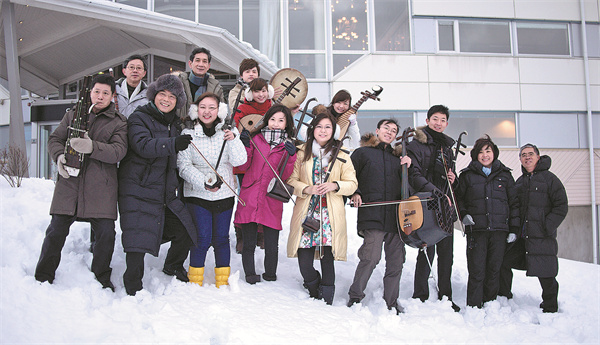

On Jan 28, at the Esplanade Concert Hall in Singapore, for the first time since the outbreak of COVID-19, the orchestra members performed for nearly two hours. Their previous performance in Singapore was eight years earlier.
"Although it is more unusual for Asians to give a standing ovation, as they tend to be considered more reserved with their manners, this time, all audience members were on their feet, as they were really immersed in our performance," Yan says.
The audience in Singapore gave rave reviews. " (The concert) shows that music connects the hearts with more strength than a thousand words," said one attendee.
The orchestra "unfurled a program so magnificent and moving, it brought tears of joy and gratitude to my eyes several times throughout the evening", another member of the audience wrote in a notebook. It was "music with life and soul", added another concertgoer.
There have been similar moving scenes in the past, including at the orchestra's last overseas performance at Mupa Budapest in Hungary, before COVID-19 hit three years ago, Yan says.
For Yan, compared with Western classic music, the trait of Chinese traditional music lies in its conversational style and storytelling nature, as well as its ability to preserve the strong, lively character of each instrument, instead of trying to create one unified style.
"That's the attractiveness of Chinese folk music," he says.
The most difficult thing about conducting a Chinese folk orchestra is that one needs to "know extremely well the characteristics of every single instrument in the orchestra, as each of them is unique", he says.
A deep understanding of Chinese culture, history and aesthetics is also required, as they are all closely associated with folk music.
"Director Yan has not only acquired very extensive experience in conducting folk music, but also a systematic way of building the orchestra and leading it to stand out," says Zhao Taisheng, the principal sanxian (a three-stringed plucked instrument) performer in the orchestra.
"He has succeeded in bringing the Hong Kong Chinese Orchestra (to) an advanced level in the world, while being highly supportive of innovative reforms pertaining to our traditional instruments."